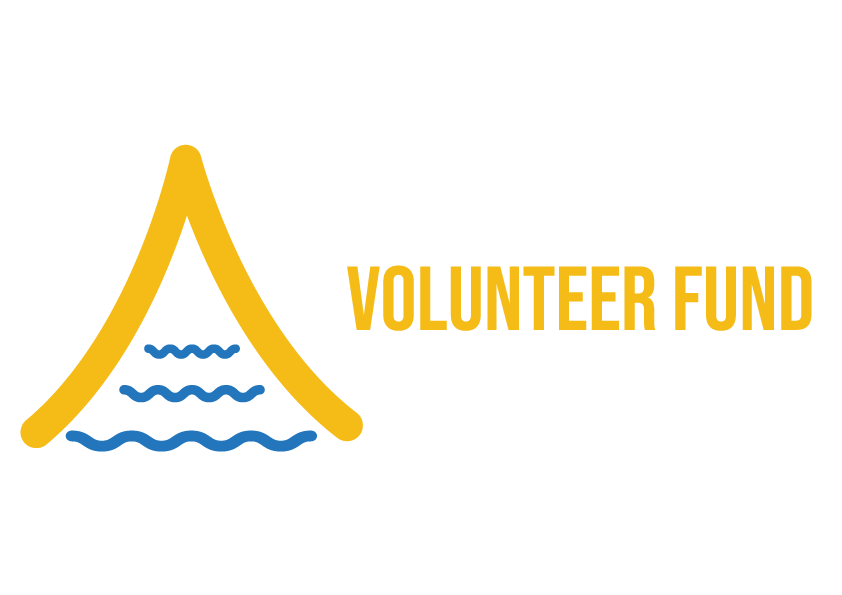Become A Volunteer
Volunteer Opportunities
Intercultural Exchange
Intercultural exchange – The global cultural exchange movement has always served as a means to promote intercultural tolerance and foster international cooperation. This intercultural exchanges have taken many forms that have included international volunteer organisations like peace corps among other international volunteer placement organisations. These exchanges have not only helped to deepen understanding between citizens of different nationalities but have also opened platforms for charity and humanitarian work. The more technically advanced western volunteers have been able to lend practical help in developing nations while deriving a sense of fulfilment while doing it.
MlamiArif
MlamiArif – is an initiative by Mathare Infotech Lab volunteer program. This initiative provides a platform for foreign nationals working or visiting Kenya to engage grassroots communities in urban slums. The initiative sources for international volunteers, conducts orientation and accompanies volunteers to orgs and helps them make work plan for their volunteer period. This engagement is based on the acute needs of organised community organisations and collectives to generate income or funds beyond traditional means for sustainability. It is also based on the need for foreign governments/embassies in Kenya to foster citizen -to-citizen relationships on top of government -to- government relationships with host countries. It is obvious that state-to-state cooperation though is on a much grand scale, it is impersonal and far removed from the common citizens.
Individual Volunter
-100 USD minimum as direct donation to grassroots organisation
– 100 USD as standard placement/introduction fee.
Group
– Any amount above 1000 euros
– 100 per person – service fee and placement/intro/
-If total in 100 is above 1000 then the price drop to 50 per head.
Volunteer Fees
| Period | Fee | |
| 1. | One Week | 200 Euros per person |
| 2. | Two Weeks | 250 Euros per person |
| 3. | Three Weeks | 300 Euros per person |
| 4. | Per Month | 300 Euros per person |
Fee include;
– Airport pickup on day of arrival
– Orientation and placement
– Accommodation the entire volunteer period
– 3 meals a day at the host family
Does not include;
– Airport transfer on departure day
– Accommodation outside host family
– Meals outside host family
– Transport to and from host project where applicable..
Volunteer Types
1. Day Visit
You visit an organisation for a whole day or just a few hour. You get to learn of their work and you get to think with them for solutions.
2. Week Engagement
You work in a grassroots organisation for one week (7 days). You create a workplan to be completed during your stay or continued even after end of volunteer period. You will have a daily minder from the organisation you are volunteering in. You have the option of living in the community or in a hotel.
3. Month(s) engagement
You work in one or multiple organisations. You get to create and work on a workplan to be completed during your volunteer period or going beyond. You will have a daily minder in any of the organisations. You have an option of living in the community in a host family or in a hotel.
Volunteer Application
Please fill in the below form


Frequently Asked Questions
We have six types of projects;
- Children – Volunteers have an opportunity to work with children. This might include working in orphan homes or teaching English in a school. To work with children, we generally have a little bit more background check than for other projects. This is to keep children safe and also to make sure that the volunteers have the capacity to work with children. Working with children is available in Nairobi, Kisumu, Nyeri, Kakamega and Mombasa.
- Environment – Volunteers have an opportunity to work in environmental conservation and climate change projects. We only have two projects on environmental conservation. One project is at Kakamega Rainforest, home to indigenous trees, monkeys, snakes and other types of wildlife. It is the only rainforest surviving in Kenya. The forest initially extended from West Africa To East Africa. While there the volunteers can work with one of the community based organisations that works to conserve the forest. The other project is in Kilifi County in the Kenyan coast and involves working with one of the community based organisations that does beach cleanups and community development work.
- Youth and women – Volunteers also have an opportunity to work in youth and women based organisations. This is the most available opportunity for volunteers. Working for this community based organisations might include administrative work, designing and running advocacy campaigns, designing and running fundraising campaigns, brainstorming on growth and expansion strategies etc. For this type of project we are confident we can find a suitable project anywhere where a volunteer wants to be posted. So if a volunteer has a geographical location in mind before coming to Kenya, we will find a host project and a host family in that area.
- Wildlife – We have a unique project in Masai land in an area called Oloitoktok near the border with Tanzania. This project will allow volunteers to work in a maasai community based organisation. Their work would include wildlife conservation initiatives carried out by the community organisation. The volunteers will get to see and engage with elephants and other wildlife living in the area. This project is near Tsavo National Park.
- Art & Music – We have two projects that work with artists and musicians. One project is in Nairobi working with a travelling theatre. The travelling theatre is made up of activists and community organisers that use theatre as a tool for activism and community organising. The other project is in Mombasa and is an art hub. The hub hosts different types of artists and a volunteer gets to interact with the artists and help them on a one on one basis. Volunteers can also choose to assist the hub in administrative work or any work that might advance the objectives of the hub.
- Activism and community organising – Volunteers who are keen on social justice, activism, community organising and social movements will be lucky. This is because there is a growing grassroots social movement in Kenya that has seen community justice centres popping up all over Kenya. These social justice centres are coordinated by a central entity. Gibson Maina, the founder of Volunteer Fund is one of the founding members of this coordinating central committee. Volunteer Fund therefore has access to all these social justice centres spread out throughout the country with favourites being in Kisumu, Mombasa, Malindi and Nairobi. Volunteers can do administrative work, designing and running advocacy campaigns, designing and running fundraising campaigns, brainstorming on growth and expansion strategies etc
All our volunteers are accommodated by host families unless there is prior arrangements for alternative accommodations. Accommodating volunteers in host families serves several purposes, one is to have volunteers fully immersed in the culture of the host community and second to save on costs. We generally provide low cost volunteer opportunities and doing this allows for cost effective accommodations.
There is a thorough vetting and training of host families. The host families already know what is expected of them even before they receive any volunteers. Volunteers are also given an orientation about living with an African family and what is culturally acceptable and what is not. This ensures that there is rarely any friction between the host family and the volunteers.
Volunteers should expect to have their own room or a shared room with another international volunteer. Volunteers do not share the same sleeping room with any member of the host family. Volunteers are usually given two meals a day, breakfast and dinner, this is because at lunch volunteers are usually at their host project. Volunteers are not allowed to give the host family any money or gifts during their stay, this is to make sure all volunteers receive the same treatment from the families.
We can be able to provide alternative accommodation where a group or an individual wants to stay in a private accommodation. For this we can source a B&B that suits the volunteer(s) needs. Being local we are better placed to find the most cost effective and safest accommodation. Volunteers who chose the private option cater for the cost of accommodation and their daily meals.
There are several ways to ensure supervision and guidance of volunteers;
Personal agency – No amount of supervision or guidance is going to triumph over personal agency. The volunteer must want to help and must believe that they are doing something important and that it requires their utmost commitment. With a willing volunteer, all other things fall into place.
Project Orientation – Volunteer Fund believes in conducting a proper project orientation. In the orientation, the volunteer receives training on the project they are volunteering in, the project objectives and expectations of the projects from the volunteer. The project orientation also involves developing a work plan. The work plan becomes the reference point of whether the volunteer is working per expectation or not. The reason we co-create the work plan with the volunteer and host project is because we want the volunteer to have a sense of ownership of his work and also to give the project an opportunity to influence the work done by the volunteer. By end of project orientation, the volunteer knows what is expected of him and the host project also knows what to expect.
Host project – The host projects appoints one of their members as the day to day supervisor of the volunteer. The host project is responsible for making sure that the volunteer has all the tools and support that they need to get their job done. The host project is able to gauge if the volunteer is on schedule in regard to the work plan developed during project orientation. The host project provides Volunteer Fund with regular updates on volunteer performance and wellbeing.
Host family – The host family also acts as a monitoring agent. The host family is able to know when and if a volunteer is going to their workstation every day or not. If there are any developing characteristics that might interfere with the volunteer performance, the host family is duty bound to inform us.
Physical Inspection – Volunteer Fund conducts at least three visits to the host project and host family during the stay of the volunteer. The first visit is the placement visit where the volunteer in the company of Volunteer Fund visits and conducts project orientation and host family orientation. The second visit is a compliance and progress visit. This visit is conducted when the volunteer has fully settled in their project and has been working. The visit allows for the volunteer to share their experience and make changes where necessary.
Impromptu Visits – There might also be impromptu visits that are done during the stay of the volunteer. The visit is usually unplanned and is a surprise to the host family, the host project and the volunteer. The visit again is to make sure that everything works as discussed even when they are not expecting a visit from Volunteer Fund.
Volunteer – All foreign volunteers have access to Gibson Maina, the founder of Volunteer Fund. They have access to a phone number that is open 24 hours a day, 7 days a week. This phone number is for emergencies or for any complaints or comments about their host project or their host family. For major complaints, it must be in writing and response also in writing. For accountability, we’d prefer your organisation to be cc’ed and the solution offered captured by you and Volunteer Fund.
We have three main areas in Kenya where we place volunteers
Urban – This usually means working in the city of Nairobi, Mombasa and Kisumu. It might also mean working in any major town in Kenya. Basically working in a major town and city, you are guaranteed electricity, internet, tap water, uber etc at host family and host project. There is little culture shock working in an urban setting.
Rural – This usually means working in a rural village in Kenya. This means you are more attuned to the African way of life and tempo. Electricity might not be guaranteed in a rural setting but there is an alternative to charge your phone and laptop. Life in the village is more laid back and the customs easily understood because rural villages have only one tribe/community.
Coastal – This means working from any urban or rural setting at the Kenyan coast. The Kenyan coast is approximately 600 kilometres extending from the border with Tanzania to the border with Somalia. The central area at the coast is Mombasa and volunteers can choose to volunteer south or north of mombasa.
